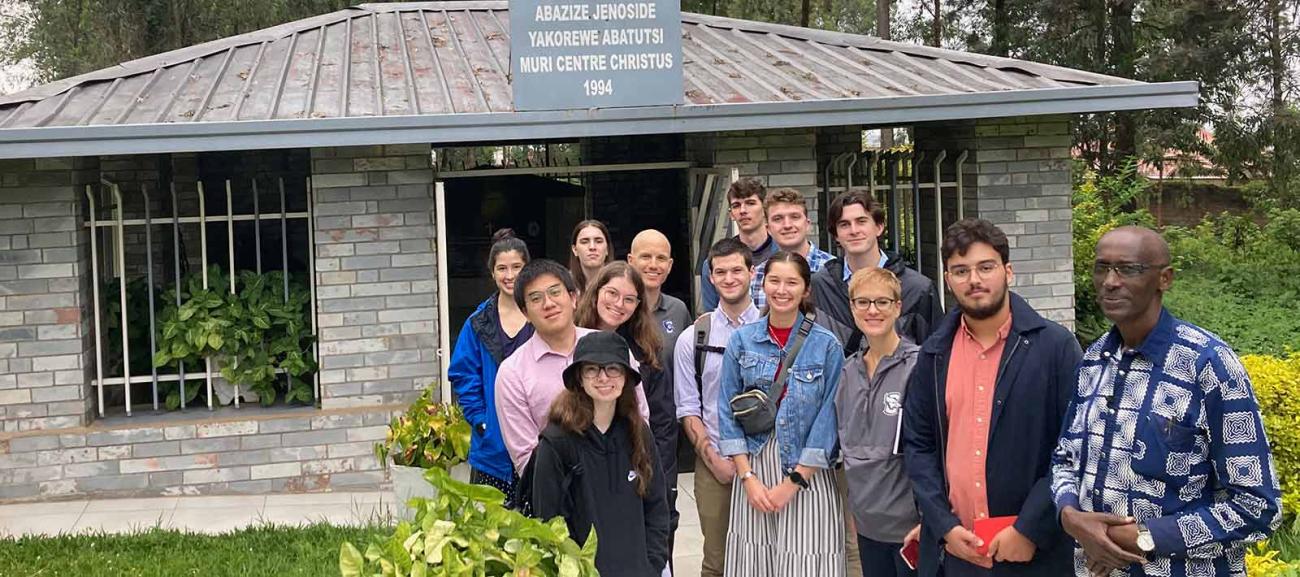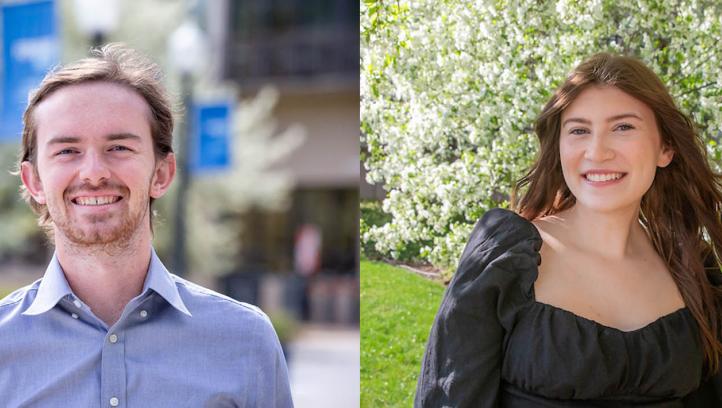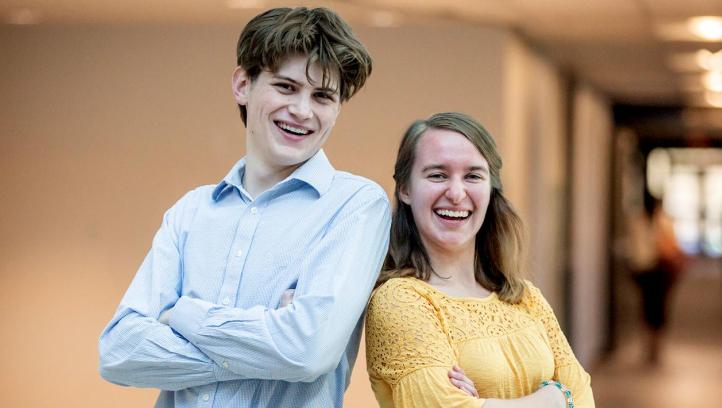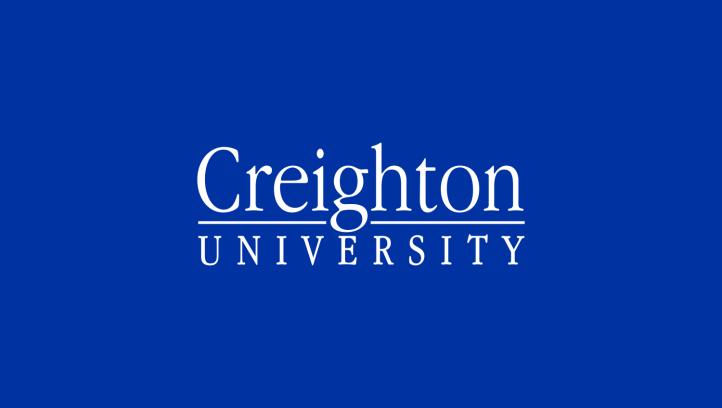
Rwanda trip teaches Creighton undergrads about community, reconciliation

Pictured above Creighton students and faculty at the Jesuit genocide memorial at Centre Christus in Rwanda. At far right is Fr. Tite Mutemanganbo, SJ, superior of the Jesuit community, Centre Christus, Kigali, Rwanda.
As the 30th anniversary of the Rwandan genocide of 1994 grows ever nearer, 11 students, most of them enrolled in Creighton University’s Honors Program, spent 10 days last October visiting the central African nation.
There they visited the Kigali National Genocide Memorial, attended the Church of Ntarama where approximately 5,000 Tutsis were murdered while seeking refuge, and learned about the emerging Rwanda where reconciliation and healing have joined with advancements in medicine and education to produce a new generation committed to peaceful coexistence.
The trip, which was described as a “pilgrimage,” took place during fall break from Oct. 7-16 and was part of a theology and honors class Christianity and the Rwandan Genocide, taught by Jay Carney, PhD, assistant professor of theology and director of the Christian Spirituality Program, and Tricia Ross, PhD, resident assistant professor, Honors Program.
Sitting in a classroom learning about one of the 20th century’s great crimes against humanity is one thing. But visiting the country where it occurred and speaking to people who lived through it reflects Creighton’s commitment to global education and the Jesuit commitment to relocating to the margins.
Creighton Honors Program students Adele Varley and Camille Vigil both made the trip.
“I was excited to be able to travel to Rwanda,” Varley says. “I think it really broadened my perspective about how lucky I am to have an education at Creighton and to be part of an Honors Program.”
She recalls her second night in Rwanda, when Fr. Innocent Rugaragu, SJ, PhD, one of their Rwandan Jesuit hosts, celebrated an English-language Mass and invited her to join the choir.
“I sing with choir at Creighton, so it was really cool to experience what it would be like to sing in a choir in Rwanda,” she says. “A lot of the songs were in Kinyarwanda, which is the native language of Rwanda. I don’t know Kinyarwanda, but it was a great experience to be invited to participate. I would never have been able to do that anywhere else.”
Experiencing Global Humanity in Person
The Rwandan Genocide, which lasted approximately 100 days between April 7 and July 15 of 1994, saw more than 800,000 Rwandan Tutsis murdered by government-directed Hutu militias in the aftermath of the Rwandan Civil War that commenced in 1990. The reverberations of the genocide later spread across the border to eastern Democratic Republic of the Congo, where insecurity and violence continue to reign today.
To visit those tragic sites, Carney says, was to embody the Jesuit commitment to experiencing global humanity in person and up close.
“Since their origins in the 16th century, the Jesuits have been a global order,” Carney says. “Likewise, global educational opportunities play a vital role in Jesuit higher education since they provide unique ways in which to engage both minds and hearts.”
Carney says the students were urged to consider the trip a “pilgrimage of solidarity” that focused on the four “Rs” of remembrance, reconciliation, rebuilding and reflection.
Ross says the trip brought course material to life, developed a sense of connection to Rwandans and inspired reflection about how to build on this experience in future personal, professional and community engagements.
“We believe this course’s vision of global engagement exemplified Pope Francis’ recent teaching in Fratelli tutti: ‘To speak of a culture of encounter means that we, as a people, should be passionate about meeting others, seeking points of contact, building bridges, planning a project that includes everyone.’”
The Importance of Community
Vigil says the trip proved impactful and reminded her of the importance of community, both in her own life and globally.
“This was a very unique Creighton experience,” she says. “We stayed with a group of Jesuits, and the ability of our classmates to really engage and be present was something special that I think is particular only to the Creighton Honors Program.”
Given the somber nature of the events they were studying, the students were well prepared.
“The instruction we received was very thorough,” Vigil says. “We were prepped with spiritual advisors as well as historical information to really help us get the most out of it. I felt prepared for what we saw there and for what we experienced.”
The ultimate lesson taught, Vigil says, was very much one of community and of supporting one another.
“If you want to go fast, go alone,” she says, quoting a common Rwandan proverb. “But if you want to go far, go together.”












